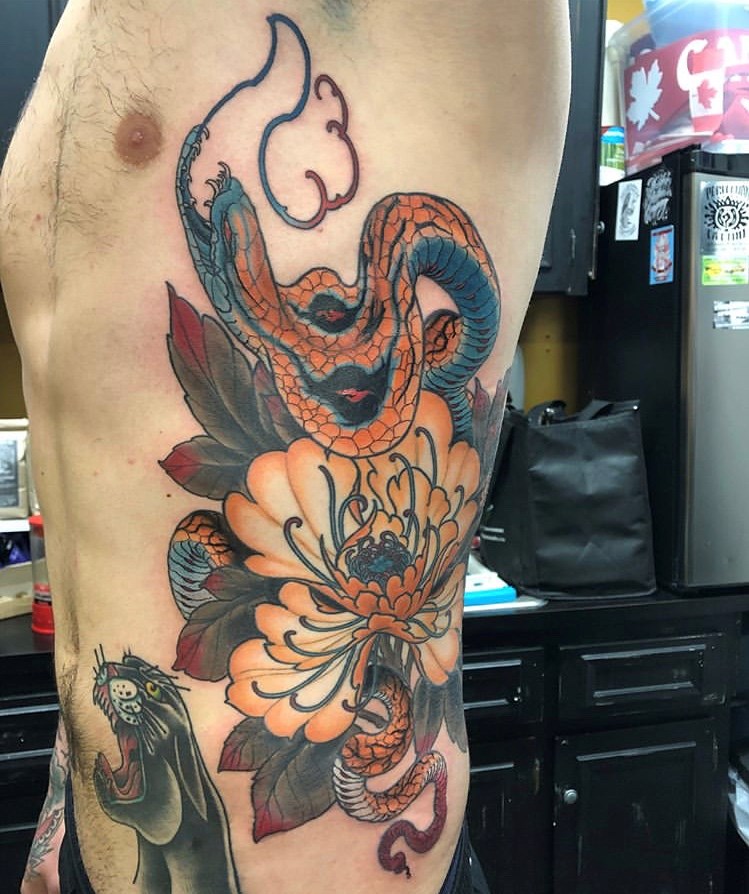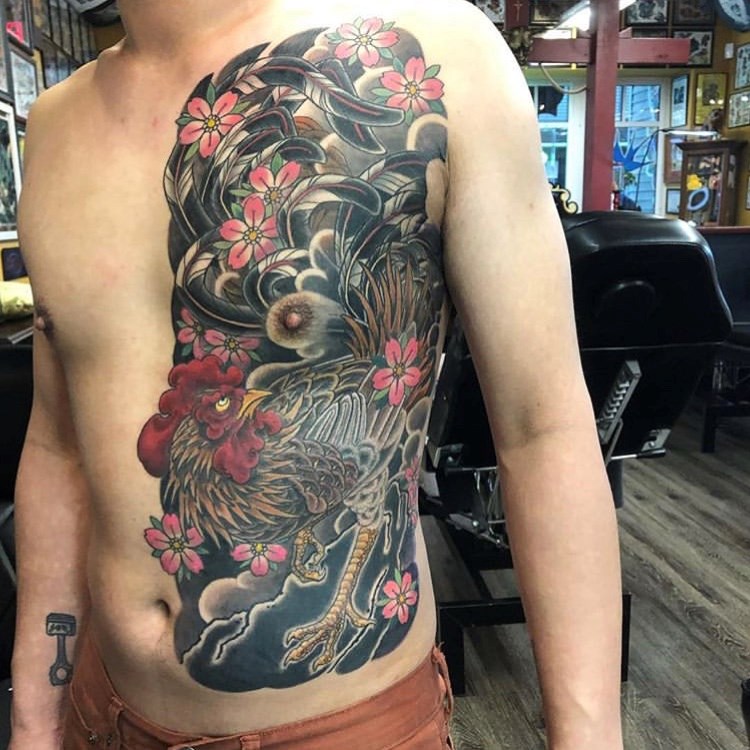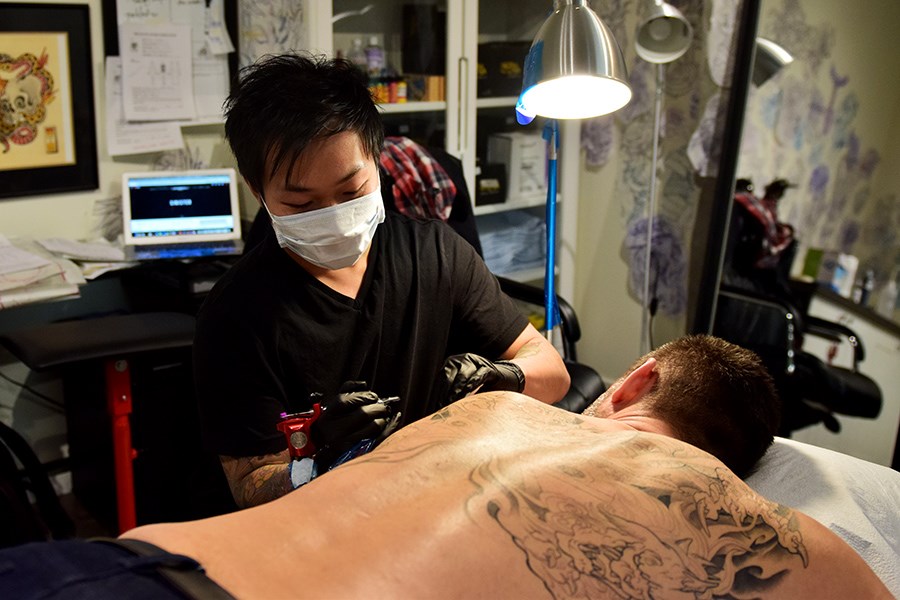Carson Yip leaned over his client’s back, red tattoo machine in his right hand and gauze in his left, adding detail to the dragon coiled on the man's shoulders.
Drawings of koi fish, foo dogs, hannya masks and the occasional Dragon Ball Z character line the walls of his Aberdeen Square shop, Ninetail Fox Tattoos, that he opened just over a year ago.
“I've always enjoyed drawing since I was very little,” said Yip, who grew up in Richmond. “I used to draw on my parents' apartment walls.”
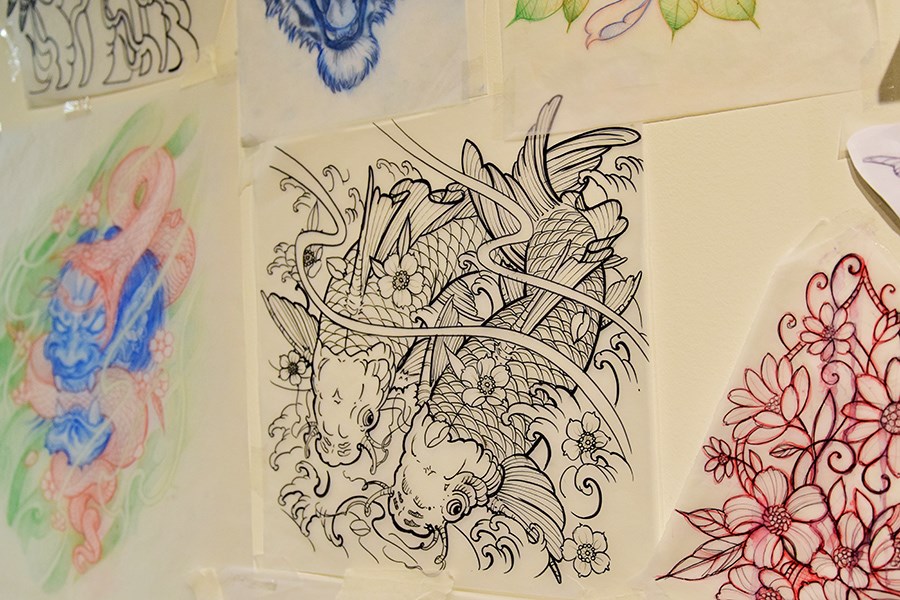
Initially, Yip wanted to be a comic book artist, but turned to tattooing after a backpacking trip where he got tattooed in a Thai shop. Seven years later, he’s inking his Asian-inspired designs onto clients’ bodies at his own studio while managing a waiting list a year-and-a-half long.
“People love getting tattooed here,” he said through his surgical mask. “When I was living in Japan it was mostly smaller pieces. Here, people like bigger tattoos. So it's a very good chance to do more large-scale work.”
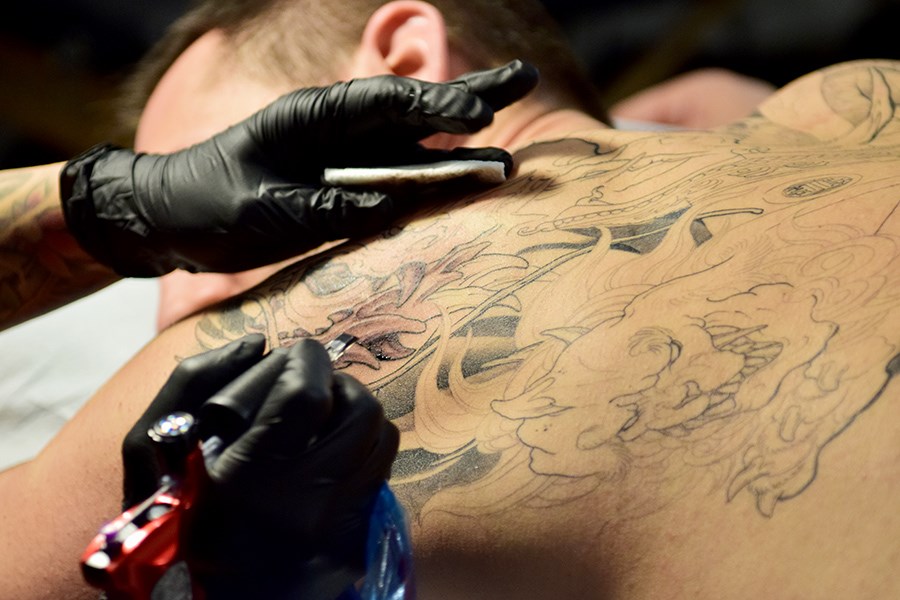
Yip says he’s part of the city’s small but growing tattoo community. Richmond is a suburb known for its great Asian food, farmland and historic fishing village on the water—not necessarily for its tattoo artists. But what that community lacks in size, it makes up for in talent, Yip said.
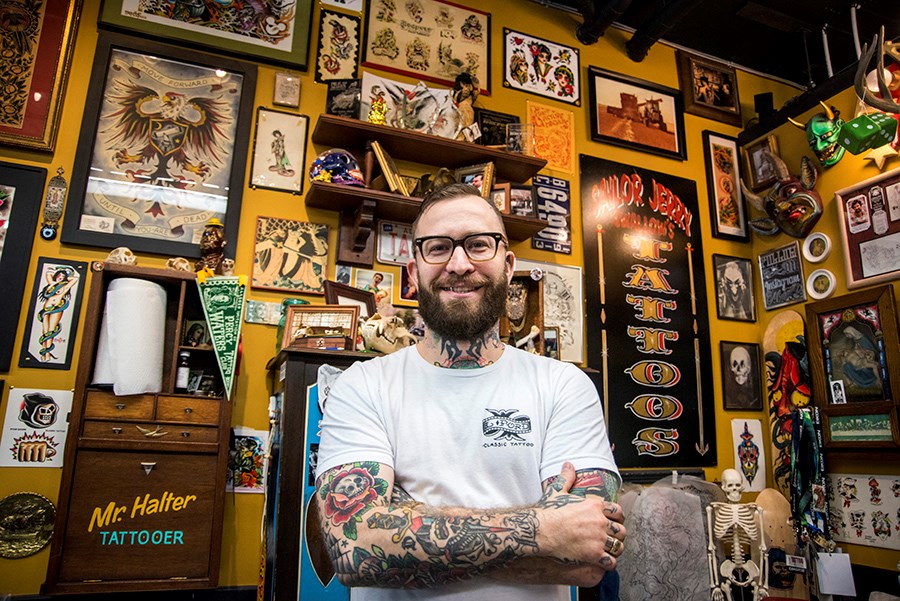
Ryan Halter, owner of the iconic Steveston Tattoo Company on 1st Avenue, thinks his shop has definitely added some edge to the quaint village during the almost-decade it’s been open.
Halter says his style is “bold and timeless.” It’s a description he thinks he’s earned over the course of his 21 year career.
“[It’s] something that’s going to age well over time,” he said. “My tattoos have been out there long enough; I know what’s going to last and what isn’t.”
His years of experience mean he’s great at the technical elements, and he said he’s also learned how to communicate with clients to get a sense of their vision.
“I think of myself more as a tattooer offering a service to somebody rather than, ‘I’m an artist and I’ll only do this thing for people.’ I don’t like that attitude,” he said.
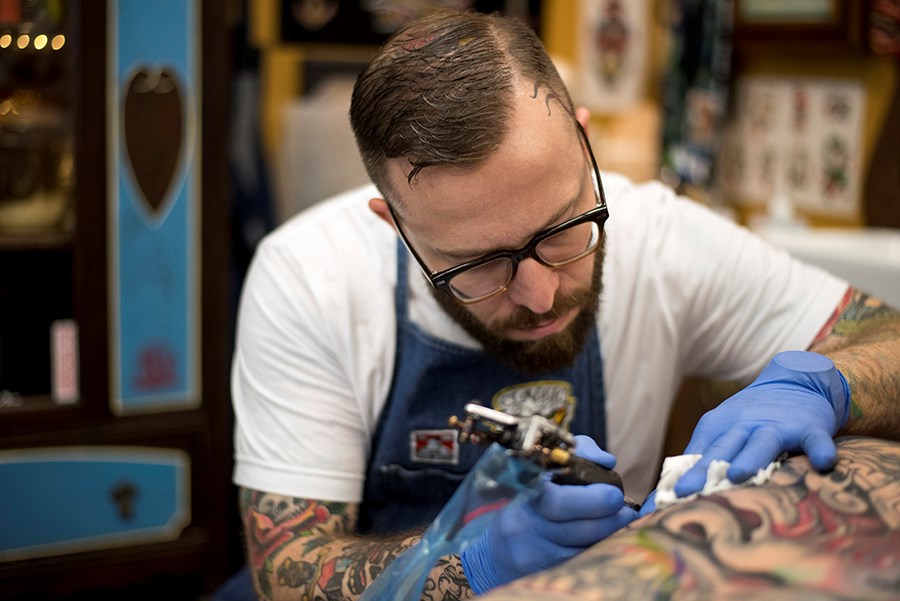
Halter got into tattooing in the late 1990s, at a time when it was more sub-culture than pop-culture, he said. Back then you needed to have a connection in order to break into the trade, he said.
The industry’s evolution Halter describes is one also documented by cultural scholars. In her book “Bodies of Inscription: A Cultural History of the Modern Tattoo Community,” Margo DeMello describes how tattoos in America, since the 1980s, have moved from symbols of affiliation for working class people to adornment sported by the middle-class.
Tattoos were first introduced to Westerners via British explorers in the 1700s, who encountered the practice in Polynesia, DeMello wrote. Of course, tattooing is an ancient practice seen around the world from Africa to Asia to North America.
Today’s Richmond tattooers bring elements of their own experience and culture to their art.
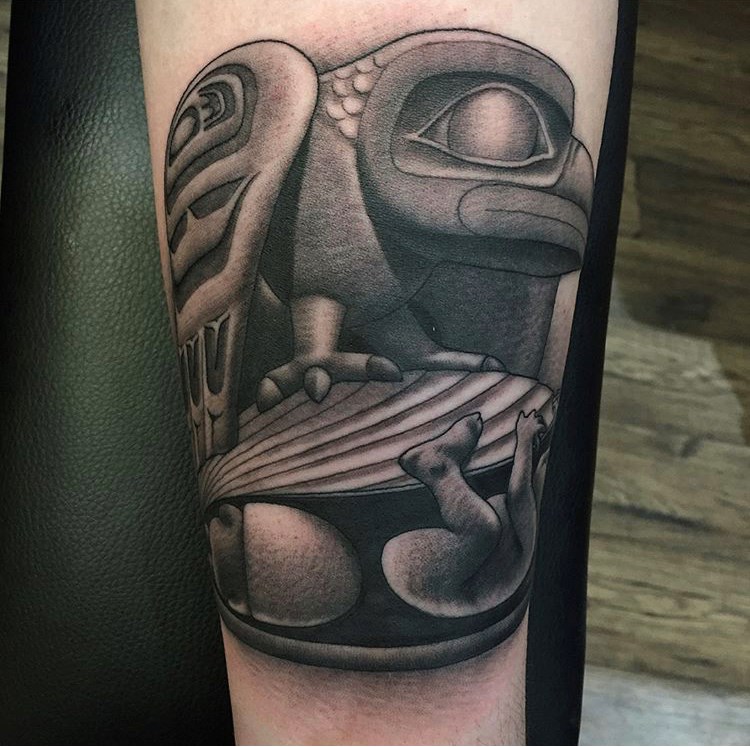
Logan Howard, an artist at Steveston Tattoo who identifies as Indigenous, has an impressive portfolio of West Coast First Nations designs. It includes bold black and red Haida-inspired animals and a stunning three-dimensional rendition of Bill Reid’s sculpture “The Raven and the First Men.”
He prides himself on being versatile, though, and also loves fine-line black and grey pieces or projects involving lettering.
Edward Truong, another Richmond artist, began his career sketching during his evening shifts as a parking lot attendant. His style, generally Asian pays homage to his heritage, he said.
“(I love tattooing because) it offered me a glimpse of what freedom is like,” he said. “(It’s) a chance to wake up every day and do something you love.”
Richmond artist Kaiju does fine-line tattoos, a style she says is popular in South Korea, where she’s from. She used to work at a video game company, but quit her desk job to follow her passion. Now she specializes in florals and animal portraits.
For her, the best part of the job is making others feel beautiful.
“That was one of my biggest motivations to start tattooing,” she said. “To help other people feel more confident in their body, and make something memorable that will last forever.”

Social media inspiring customers
The internet and Instagram have enabled people to research tattoo styles more easily and see what artists are offering. Halter thinks tattoos have definitely become more mainstream, which is good for business.
“It used to be you’re either a criminal or a society outcast. Now it’s definitely an art form,” he said. “I go to my kids’ school, I’m heavily tattooed and I don’t get the looks that I used to.”
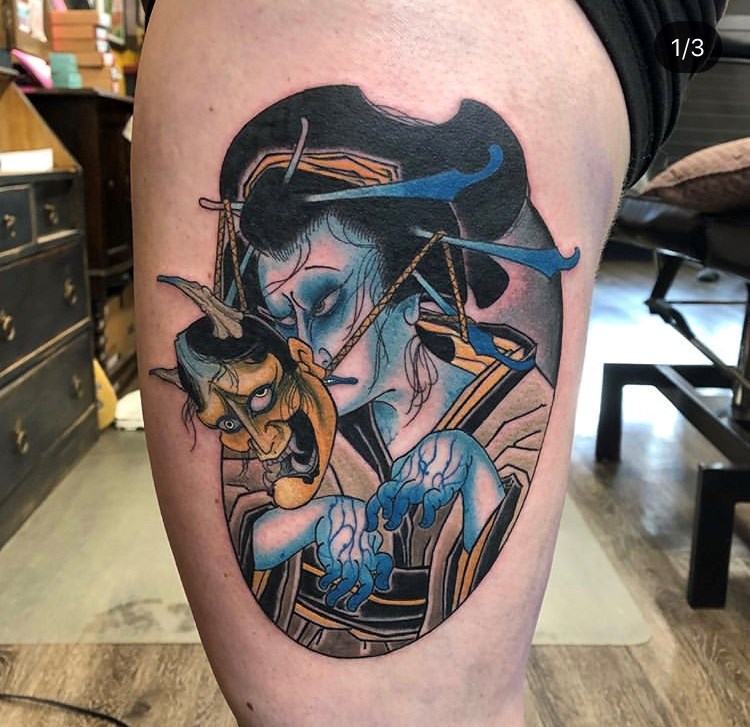
Since opening the shop in 2011, Halter has built a global reputation and attracted world-class artists to his staff.
Horichou, the third Steveston Tattoo artist, likes the duality of working at a renowned shop that’s in a picturesque village where people passing by might not know of its fame.
“A lot of them have no idea of the studio’s international reputation,” said the tattooer who’s worked in Australia, New Zealand, Taiwan and France.
Horichou began as a pen-on-paper artist, but said he loves tattooing because it allows him to connect directly with a client.
“It’s great to have people (who) like your work enough that they want it on them for life. It’s very humbling.”
Meet the artists:
Ryan Halter
Shop: Steveston Tattoo Company
Style: A blend of traditional American and traditional Japanese
Years tattooing: 21
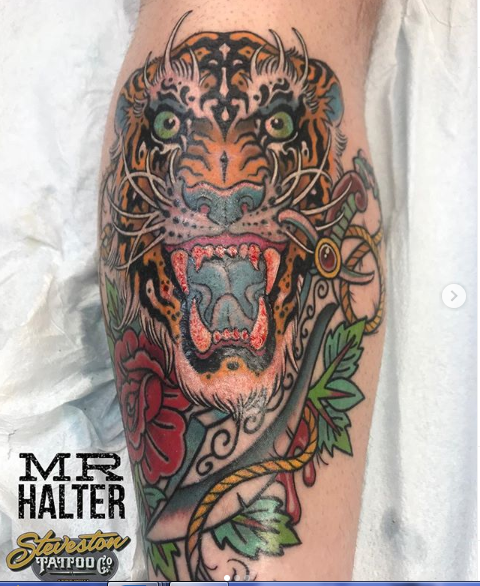
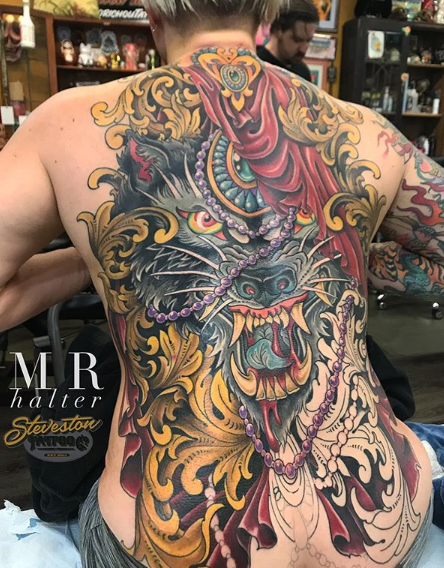
Logan Howard
Shop: Steveston Tattoo Company
Years tattooing: 12
Style: He’s great at fine-line black and grey pieces, lettering projects or First Nations art-inspired pieces.
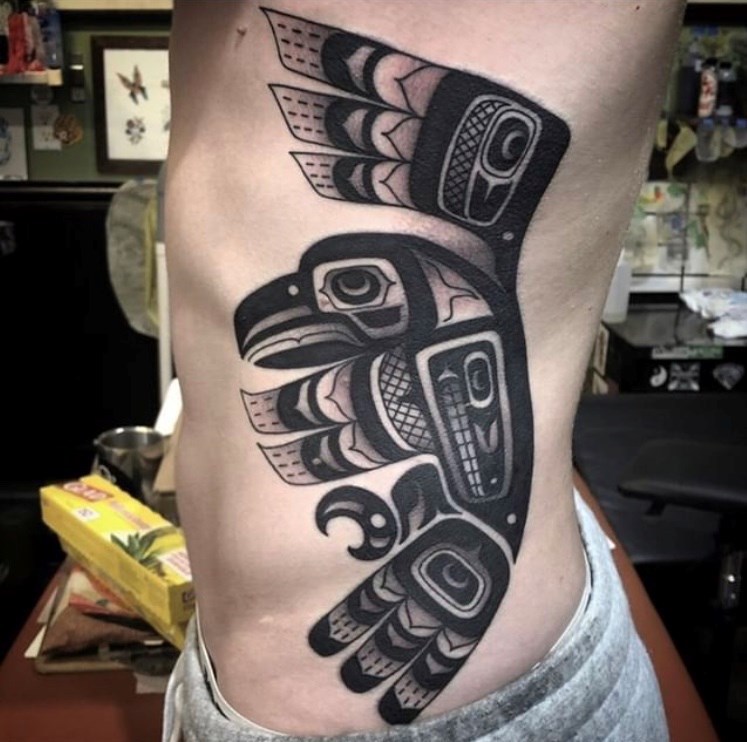
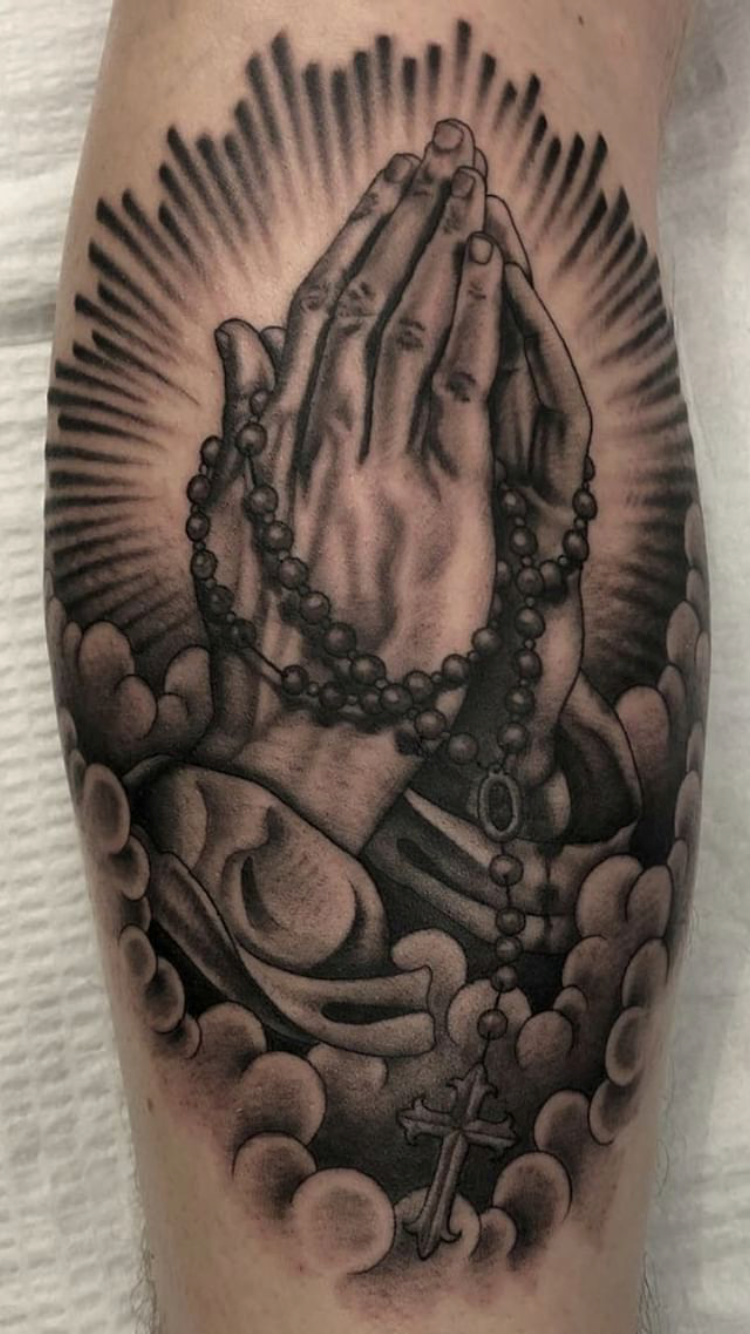
Edward Truong
Shop: Independent for now, but he’s heading Chronic Ink’s expansion to Vancouver later this year
Years tattooing: Four
Style: Truong doesn’t get too particular, describing his style as generally Asian.
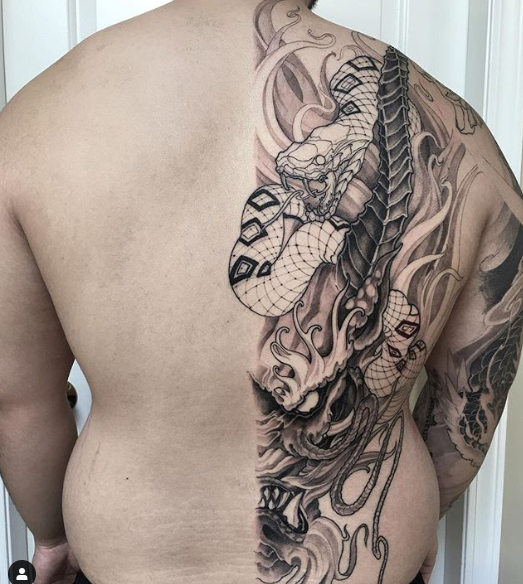
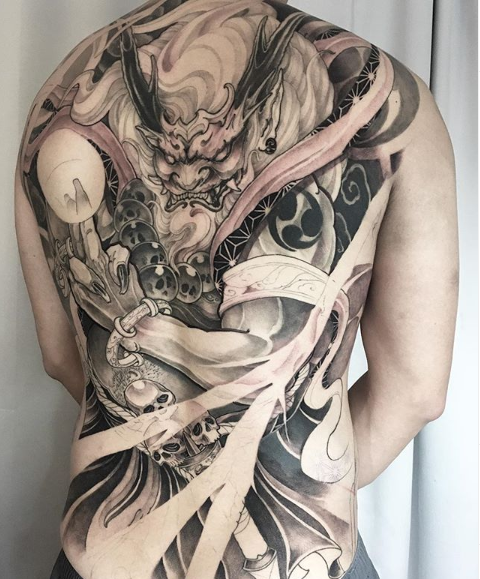
Kaiju
Shop: Independent
Years tattooing: Three
Style: Fine-line
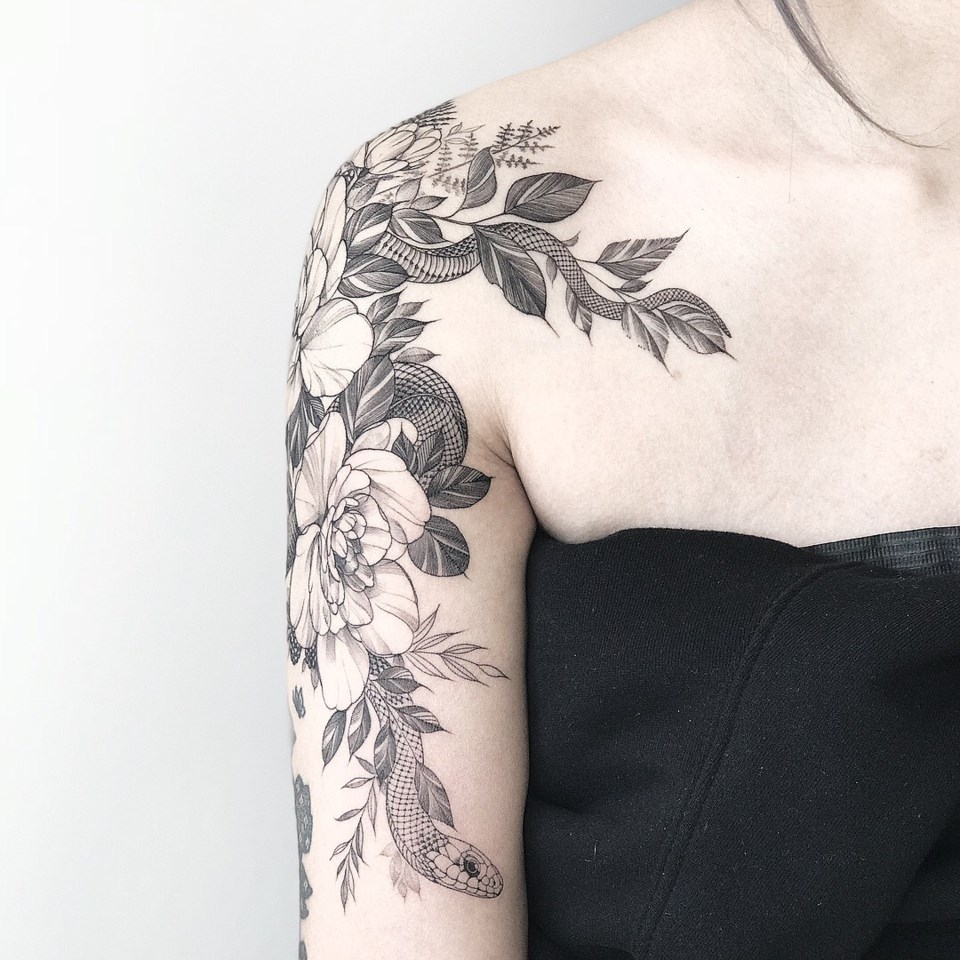
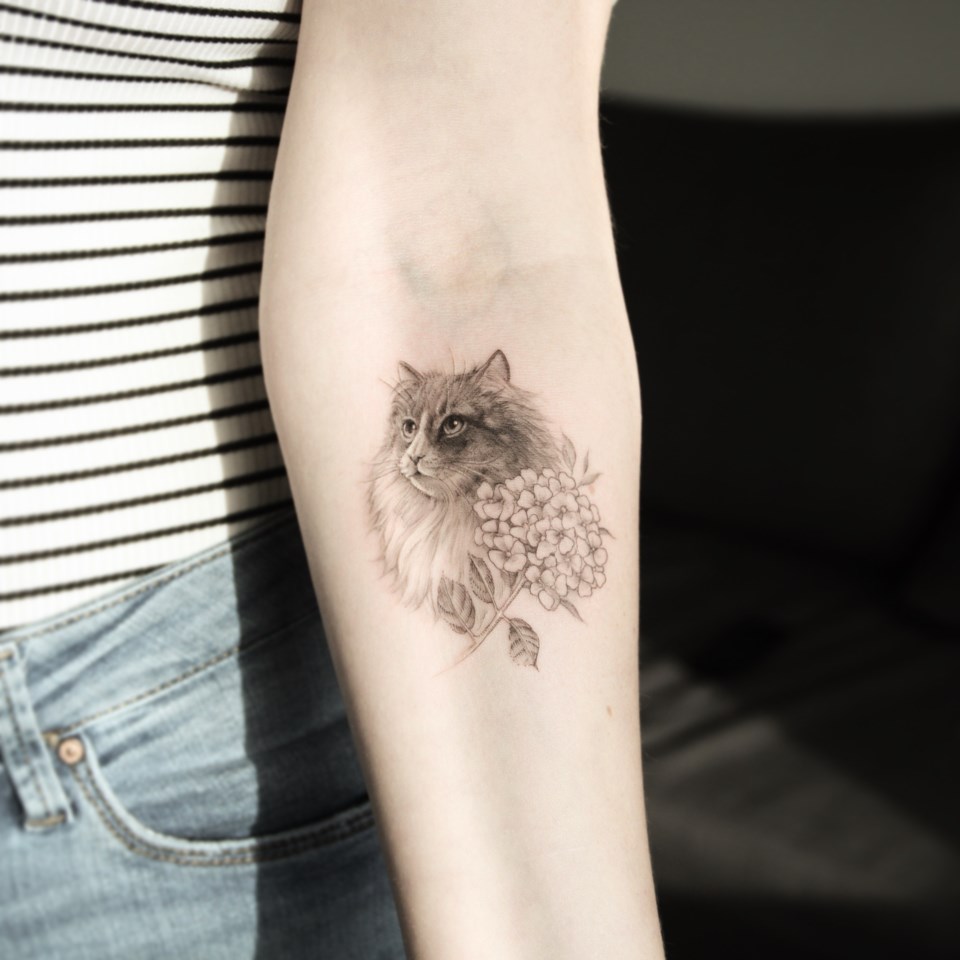
Carson Yip
Shop: Ninetail Fox Tattoos
Years tattooing: Seven
Style: Asian-inspired
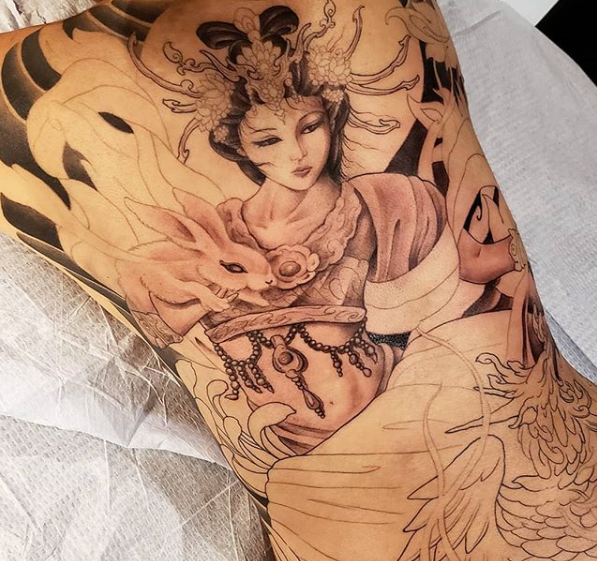
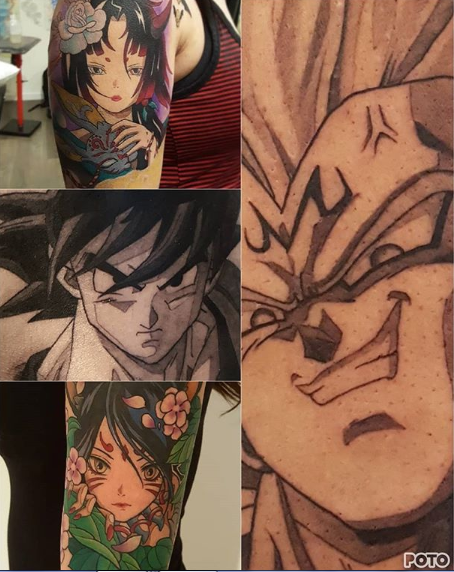
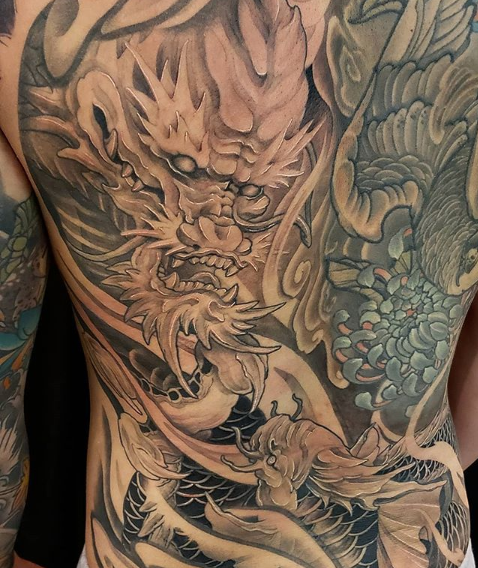
Horichou
Shop: Steveston Tattoo Company
Style: A modern take on traditional Japanese
Years tattooing: 13
